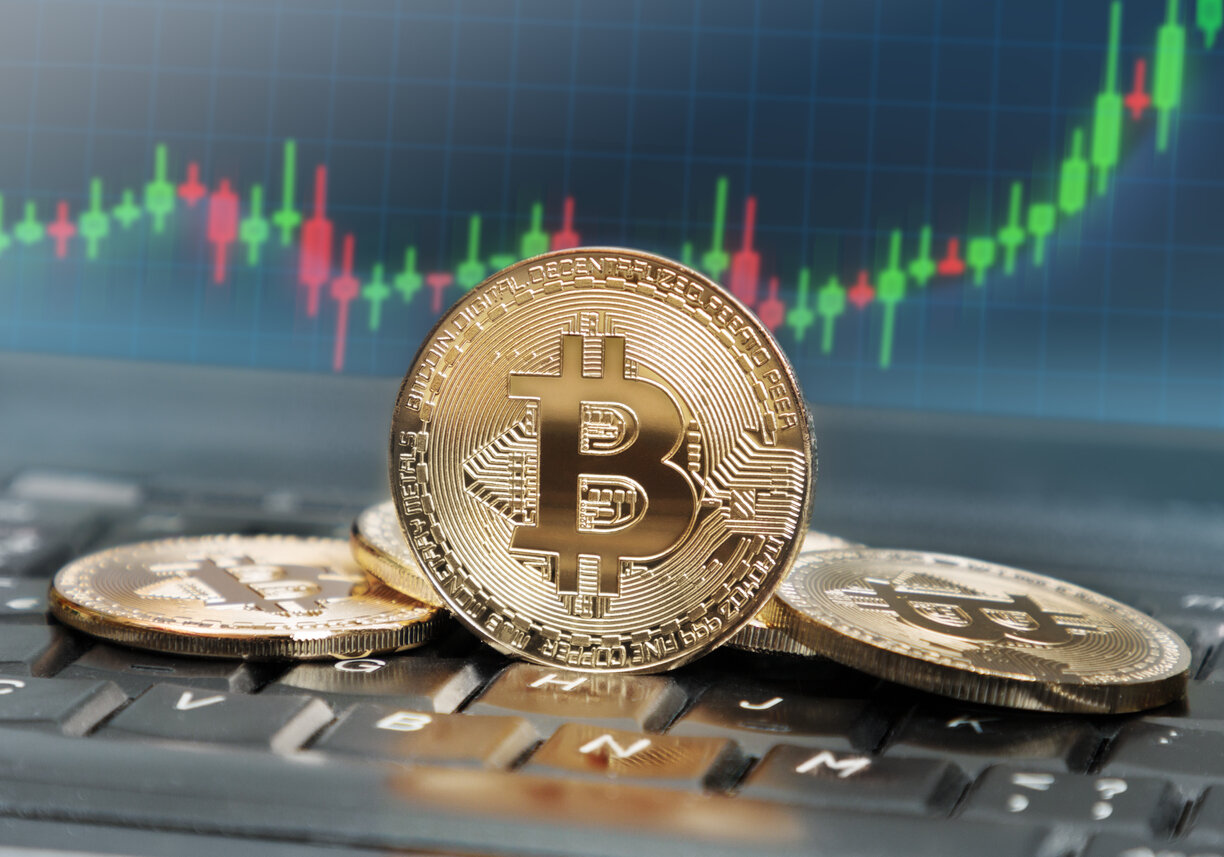Is Bitcoin Dead? Here's What Investors Should Do Now
Bitcoin slump got you worried? Breathe easy! This guide answers "Is Bitcoin Dead?" & equips you with strategies to navigate the crypto rollercoaster.
Author:James PierceReviewer:Camilo WoodFeb 09, 202412 Shares12.1K Views

Over the past few years, Bitcoin has become a focal point for both investors and the broader population. Being the inaugural decentralized digital currency, Bitcoin has made a notable mark on the financial landscape. Yet, discussions and apprehensions about its sustainability in the long run persist. This piece seeks to offer an in-depth evaluation for those investing in BTC to ascertain the current status of Bitcoin: Is Bitcoin Dead?
Introduction To Bitcoin
Launched in 2009 by an unidentified individual or group under the alias Satoshi Nakamoto, Bitcoinhas experienced considerable expansion and evolution since its beginnings.
Throughout its history, it has seen various market phases, drawing in eager investors and cautious skeptics alike. However, the pressing query remains: what lies ahead for Bitcoin, and is it truly extinct?
Is Bitcoin Dead
Far from being extinct, Bitcoin, even with its challenges and price fluctuations, remains very much alive in 2023.
Indeed, it showcases ongoing resilience and flexibility, solidifying its position as the foremost and dominant digital currency in the market.
Although there are those who believe Bitcoin's golden era is over, it's crucial to examine the underlying elements that contribute to its endurance and prospects for expansion.
Influences On Bitcoin's Market Value
The value of Bitcoin is influenced by a multitude of factors that contribute to its known volatility. Here are ten crucial factors that impact Bitcoin's valuation.
Price Fluctuations Of Bitcoin
A defining trait of Bitcoin is its significant price volatility. Throughout its history, Bitcoin has seen major swings in price. This volatility can offer opportunities for traders but has also sparked debates about its reliability as a currency or a store of value.
Adoption And Widespread Use
Through the years, Bitcoin has seen a surge in adoption and recognition across various sectors and industries. Notable corporations, including PayPal and Tesla, have incorporated Bitcoin into their payment options.
Moreover, nations such as El Salvador have even recognized Bitcoin as an official currency. This increased adoption signals that Bitcoin is still very much in the game, continuing to garner interest from both the corporate and governmental sectors.
Regulatory Hurdles
The decentralized nature of Bitcoin presents regulatory obstacles for governments globally. The regulatory landscapefor cryptocurrencies is highly variable, creating a sense of unpredictability for investors.
Though regulations can lend stability and safety, excessively stringent policies could impede the progress and evolution of the digital currency landscape.
Scalability Challenges
The issue of scalability has been a significant point of debate in the cryptocurrency community concerning Bitcoin. As transaction volumes on the Bitcoin network increase, it may face difficulties handling the surge, potentially leading to delayed transaction processing times and increased transaction costs.
Initiatives like the Lightning Network have been developed to mitigate these scalability challenges, aiming to enhance Bitcoin's efficiency and user experience.
Security Risks
The security of digital assets is paramount, and Bitcoin is no different in this regard. Although the blockchain technology underpinning Bitcoin is deemed secure, there have been incidents of security breaches and thefts involving exchanges and digital wallets.
It's essential for Bitcoin holders to adopt stringent security measures, such as utilizing reliable wallets and practicing robust security protocols, to safeguard their assets.
Influence Of Alternative Cryptocurrencies
The emergence of alternative cryptocurrencies, or altcoins, presents a varied landscape alongside Bitcoin. These cryptocurrencies introduce diverse attributes and capabilities, setting them apart from Bitcoin.
While there are perspectives suggesting that altcoins may one day surpass Bitcoin, there is also a belief in the potential for a harmonious existence and mutual enhancement among the different cryptocurrencies within the digital currency ecosystem.
Institutional Engagement With Bitcoin
Over the past few years, there has been a noticeable increase in interest from institutional investors and corporations towards Bitcoin.
Major entities such as MicroStrategy and Square have dedicated a considerable part of their treasury assets to Bitcoin.
This move by institutions adds a layer of credibility and stability to the cryptocurrency market, reflecting the trust that some of these financial players place in the future of Bitcoin.
Bitcoin As A Store Of Value
A significant aspect of the conversation around Bitcoin is its role as a potential store of value, akin to gold. Proponents suggest that Bitcoin's finite supply and decentralized structure offer a viable option for wealth preservation.
They point to Bitcoin's scarcity and the lack of central control as defenses against inflation and governmental interference, drawing investors looking for alternatives to conventional fiat currencies and assets.
Technological Progress
The technology at the heart of Bitcoin, blockchain, is under constant development and refinement.
Innovations like Segregated Witness (SegWit) and the Lightning Network are designed to solve issues related to Bitcoin's scalability, enhance transaction speeds, and improve privacy measures.
These technological strides are crucial for overcoming Bitcoin's existing limitations, ensuring it remains a key player in the digital finance space.
Environmental Impact
A notable critique of Bitcoin concerns its environmental footprint. The mining process, crucial for transaction validation and network security, demands a significant amount of energy.
With the network's expansion and the increase in mining activities, there are growing apprehensions about the sustainability of Bitcoin mining, particularly regarding its carbon emissions.
Nonetheless, initiatives are underway to investigate mining methods that are more energy-efficient and to encourage the adoption of renewable energy sources in mining activities.
The Potential For A Full BTC Recovery
Determining if BTC can make a full recovery requires an understanding of market cycles, which are shaped by a variety of elements including market sentiment, regulatory changes, technological progress, and broader economic trends.
The 2017 Bull Market - Bitcoin saw an extraordinary bull run in 2017, peaking at close to $20,000. This rise was fueled by wider acceptance, significant media attention, and a surge in retail investor interest.
Yet, this was followed by a considerable market correction, with Bitcoin's value plummeting subsequently.
The Path to Recovery - After this peak, Bitcoin went through an extended bear phase, characteristic of a recovery process involving stages of accumulation, markup, distribution, and markdown.
Bitcoin's journey has been marked by a recurring pattern of dramatic price increases followed by periods of stabilization.
Outlook for Recovery - Predicting Bitcoin's recovery is not certain, but looking at past trends, there's a possibility for resurgence, as seen in the pattern of reaching new highs and higher lows with each bull market cycle, suggesting a long-term upward trajectory.
Prospects For Bitcoin's Future
Bitcoin's future is both unpredictable and full of potential. Despite facing hurdles and doubts, its capacity for resilience and adaptation has been proven time and again.
With an increasing number of people, companies, and financial institutions adopting cryptocurrencies, Bitcoin is expected to maintain its leading position in the realm of digital assets.
Yet, the environment is ever-changing, and it's crucial for investors to keep abreast of regulatory shifts, technological progress, and evolving market dynamics to navigate their investment strategies wisely.
Bitcoin Halving's Influence On BTC's Market Value
The effect of Bitcoin halvingevents on BTC's price has been evident across past cycles. Following each halving, there has been a notable increase in Bitcoin's value over time, a trend commonly linked to the decrease in new Bitcoin supply and the consequent rise in scarcity.
These halving moments are keenly watched by investors and traders for the profitable opportunities they might present. The lead-up to and aftermath of halvings tend to fuel speculative trading, leading to heightened market volatility.
Considering An Investment In BTC
Given its position as the foremost cryptocurrency by market cap, Bitcoin represents a significant investment gamble, largely due to its pronounced volatility.
Investing in Bitcoin is advisable only for those with a high tolerance for risk, a solid financial foundation, and the resilience to bear potential investment losses. If you choose to invest, ensuring your portfolio is diverse across a range of assets is crucial to lowering your risk.
A common rule of thumb is to limit exposure to high-risk investments like Bitcoin to no more than 10% of your entire investment portfolio.
Frequently Asked Questions - Is Bitcoin Dead
Is Bitcoin Susceptible To Hacking?
Though the blockchain technology underpinning Bitcoin is considered secure, the security of individual wallets and exchanges can be compromised. Ensuring the use of secure wallets, implementing robust security measures, and opting for trustworthy exchanges are essential steps to mitigate this risk.
What Is The Legal Status Of Bitcoin?
Bitcoin's legal status differs across the globe. While some countries have welcomed it, others, including China, have implemented restrictions. Before participating in Bitcoin transactions, it's crucial to be aware of the regulations in your area.
What Is The Possibility Of Altcoins Superseding Bitcoin?
Altcoins present various functionalities and attributes distinct from Bitcoin. Despite their unique advantages, the early adoption, extensive acceptance, and significant market presence of Bitcoin render its complete replacement improbable.
Conclusion
Is bitcoin dead? In summary, Bitcoin is very much alive. From its initial stages, it has transformed into a digital asset recognized worldwide, with increasing adoption and acceptance. Despite facing obstacles like price fluctuations, regulatory ambiguities, and issues with scalability, Bitcoin still draws interest from investors, gains institutional backing, and benefits from ongoing technological advancements.
For BTC investors, it's imperative to engage in comprehensive research, keep abreast of sector trends, and evaluate their risk appetite prior to making investment choices.

James Pierce
Author

Camilo Wood
Reviewer
Latest Articles
Popular Articles


